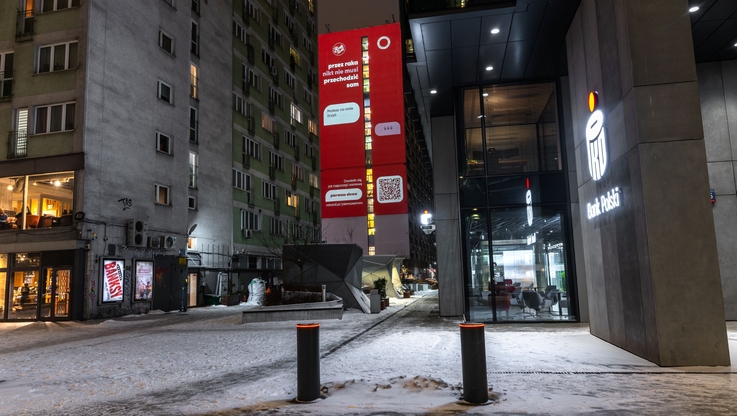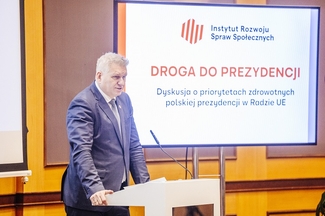Pobierz materiał i Publikuj za darmo
London, March 14, 2017 - Despite increased political and financial volatility in Europe, many of its cities offer the world’s highest quality of living and remain attractive destinations for expanding business operations and sending expatriates on assignment, according to Mercer’s 19th annual Quality of Living survey. City infrastructure, ranked separately this year, plays an important role when multinationals decide where to establish locations abroad and send expatriate workers. Easy access to transportation, reliable electricity, and drinkable water are all important considerations when determining hardship allowances based on differences between a given assignee’s home and host locations.
“Economic instability, social unrest, and growing political upheaval all add to the complex challenge multinational companies face when analysing quality of living for their expatriate workforce,” said Ilya Bonic, senior partner and president of Mercer’s Career business. “For multinationals and governments it is vital to have quality of living information that is accurate, detailed, and reliable. It not only enables these employers to compensate employees appropriately, but it also provides a planning benchmark and insights into the often-sensitive operational environment that surrounds their workforce.
“In uncertain times, organisations that plan to establish themselves and send staff to a new location should ensure they get a complete picture of the city, including its viability as a business location and its attractiveness to key talent,” Mr Bonic added.
Vienna occupies first place for overall quality of living for the 8th year running, with the rest of the top-ten list mostly filled by European cities: Zurich is in second place, with Munich (4), Dusseldorf (6), Frankfurt (7), Geneva (8), Copenhagen (9), and Basel, a newcomer to the list, in 10th place. The only non-European cities in the top ten are Auckland (3) and Vancouver (5). The highest ranking cities in Asia and Latin America are Singapore (25) and Montevideo (79), respectively.
Mercer’s survey also includes a city infrastructure ranking that assesses each city’s supply of electricity, drinking water, telephone and mail services, and public transportation as well as traffic congestion and the range of international flights available from local airports. Singapore tops the city infrastructure ranking, followed by Frankfurt and Munich both in 2nd place. Baghdad (230) and Port au Prince (231) rank last for city infrastructure.
Mercer’s authoritative survey is one of the world’s most comprehensive and is conducted annually to enable multinational companies and other organisations to compensate employees fairly when placing them on international assignments. In addition to valuable data, Mercer’s Quality of Living surveys provide hardship premium recommendations for over 450 cities throughout the world; this year’s ranking includes 231 of these cities.
“The success of foreign assignments is influenced by issues such as ease of travel and communication, sanitation standards, personal safety, and access to public services,” said Slagin Parakatil, Principal at Mercer and responsible for its quality of living research. “Multinational companies need accurate and timely information to help calculate fair and consistent expatriate compensation – a real challenge in locations with a compromised quality of living.”
Mr Parakatil added, “A city’s infrastructure, or rather the lack thereof, can considerably affect the quality of living that expatriates and their families experience on a daily basis. Access to a variety of transport options, being connected locally and internationally, and access to electricity and drinkable water are among the essential needs of expatriates arriving in a new location on assignment. A well-developed infrastructure can also be a key competitive advantage for cities and municipalities trying to attract multinational companies, talent, and foreign investments.”
Europe
Even with political and economic turbulence, Western European cities continue to enjoy some of the highest quality of living worldwide. Still in the top spot, Vienna is followed by Zurich (2), Munich (4), Dusseldorf (6), Frankfurt (7), Geneva (8), Copenhagen (9), and a newcomer to the list, Basel (10). In 69th place, Prague is the highest ranking city in Central and Eastern Europe, followed by Ljubljana (76) and Budapest (78). Most European cities remained stable in the ranking, with the exception of Brussels (27), dropping six places because of terrorism-related security issues, and Rome (57), down four places due to its waste-removal issues. Finally, Istanbul fell from 122nd to 133rd place as a result of the severe political turmoil in Turkey during the past year. The lowest ranking cities in Europe are St. Petersburg and Tirana (both ranked 176), along with Minsk (189).
Western European cities also hold most of the top ten places in the city infrastructure ranking with Frankfurt and Munich jointly ranking 2nd worldwide, followed by Copenhagen (4) and Dusseldorf (5). London is in 6th place, and Hamburg and Zurich both rank 9th. Ranking lowest across Europe are Sarajevo (171) and Tirana (188).
“Cities that rank high in the city infrastructure list provide a combination of top-notch local and international airport facilities, varied and extended coverage through their local transportation networks, and innovative solutions such as smart technology and alternative energy,” said Mr Parakatil. “Most cities now align variety, reliability, technology, and sustainability when designing infrastructure for the future.”
Notes to Editors
Mercer produces worldwide quality-of-living rankings annually from its Worldwide Quality of Living Surveys. Individual reports are produced for each city surveyed. Moreover, comparative quality-of-living indexes between a base city and host city are available, as are multiple-city comparisons. Details are available from Mercer Client Services in Warsaw, at +48 22 434 5383 or at www.mercer.com/qualityofliving.
The data was largely analysed between September and November 2016, and it will be updated regularly to account for changing circumstances. In particular, the assessments will be revised to reflect significant political, economic, and environmental developments.The list of rankings is provided to media for reference, and should not be published in full. The top 10 and bottom 10 cities in either list may be reproduced in a table.
The information and data obtained through the Quality of Living reports are for information purposes only and are intended for use by multinational organisations, government agencies, and municipalities. They are not designed or intended for use as the basis for foreign investment or tourism. In no event will Mercer be liable for any decision made or action taken in reliance of the results obtained through the use of, or the information or data contained in, the reports. While the reports have been prepared based upon sources, information, and systems believed to be reliable and accurate, they are provided on an “as-is” basis, and Mercer accepts no responsibility/liability for the validity/accuracy (or otherwise) of the resources/data used to compile the reports. Mercer and its affiliates make no representations or warranties with respect to the reports, and disclaim all express, implied and statutory warranties of any kind, including, representations and implied warranties of quality, accuracy, timeliness, completeness, merchantability, and fitness for a particular purpose.
Expatriates in Difficult Locations: Determining Appropriate Allowances and Incentives
Companies need to determine expatriate compensation packages rationally, consistently, and systematically using reliable data. Providing incentives to reward and recognise the effort that employees and their families make when taking on international assignments remains a typical practice, particularly for difficult locations.
Two common incentives include a quality-of-living allowance and a mobility premium:
- A quality-of-living or “hardship” allowance compensates for a decrease in the quality of living between home and host locations.
- A mobility premium simply compensates for the inconvenience of being uprooted and having to work in another country.
A quality-of-living allowance is typically location-related, while a mobility premium is usually independent of the host location. Some multinational companies combine these premiums, but the vast majority provides them separately.
Quality of Living: City Benchmarking
Mercer also helps municipalities to assess factors that can improve their quality of living rankings. In a global environment, employers have many choices about where to deploy their mobile employees and set up new business. A city’s quality of living can be an important variable for employers to consider.
Leaders in many cities want to understand the specific factors that affect their residents’ quality of living and address those issues that lower a city’s overall quality-of-living ranking. Mercer advises municipalities by using a holistic approach that addresses the goals of progressing towards excellence and attracting both multinational companies and globally mobile talent by improving the elements that are measured in its Quality of Living survey.
Mercer Hardship Allowance Recommendations
Mercer evaluates local living conditions in more than 450 cities surveyed worldwide. Living conditions are analysed according to 39 factors, grouped in 10 categories:
1. Political and social environment (political stability, crime, law enforcement, etc.).
2. Economic environment (currency exchange regulations, banking services).
3. Socio-cultural environment (media availability and censorship, limitations on personal freedom).
4. Medical and health considerations (medical supplies and services, infectious diseases, sewage, waste disposal, air pollution, etc.).
5. Schools and education (standards and availability of international schools).
6. Public services and transportation (electricity, water, public transportation, traffic congestion, etc.).
7. Recreation (restaurants, theatres, cinemas, sports and leisure, etc.).
8. Consumer goods (availability of food/daily consumption items, cars, etc.).
9. Housing (rental housing, household appliances, furniture, maintenance services).
10. Natural environment (climate, record of natural disasters).
The scores attributed to each factor, which are weighted to reflect their importance to expatriates, permit objective city-to-city comparisons. The result is a quality of living index that compares relative differences between any two locations evaluated. For the indices to be used effectively, Mercer has created a grid that enables users to link the resulting index to a quality of living allowance amount by recommending a percentage value in relation to the index.
About Mercer
Mercer is a global consulting leader in talent, health, retirement and investments. Mercer helps clients around the world advance the health, wealth and careers of their most vital asset – their people. Mercer’s more than 20,000 employees are based in 43 countries and the firm operates in over 140 countries. Mercer is a wholly owned subsidiary of Marsh & McLennan Companies (NYSE: MMC), a global professional services firm offering clients advice and solutions in the areas of risk, strategy and people. With annual revenue of $13 billion and 60,000 colleagues worldwide, Marsh & McLennan Companies is also the parent company of Marsh, a leader in insurance broking and risk management; Guy Carpenter, a leader in providing risk and reinsurance intermediary services; and Oliver Wyman, a leader in management consulting. For more information, visit www.mercer.com.
CONTACT:
Steffen Zwink
tel. + 49 (0) 69 689 778 665
e-mail: steffen.zwink@mercer.com
Pobierz materiał i Publikuj za darmo
bezpośredni link do materiału
| Data publikacji | 17.03.2017, 14:06 |
| Źródło informacji | APA-OTS |
| Zastrzeżenie | Za materiał opublikowany w serwisie PAP MediaRoom odpowiedzialność ponosi – z zastrzeżeniem postanowień art. 42 ust. 2 ustawy prawo prasowe – jego nadawca, wskazany każdorazowo jako „źródło informacji”. Informacje podpisane źródłem „PAP MediaRoom” są opracowywane przez dziennikarzy PAP we współpracy z firmami lub instytucjami – w ramach umów na obsługę medialną. Wszystkie materiały opublikowane w serwisie PAP MediaRoom mogą być bezpłatnie wykorzystywane przez media. |








